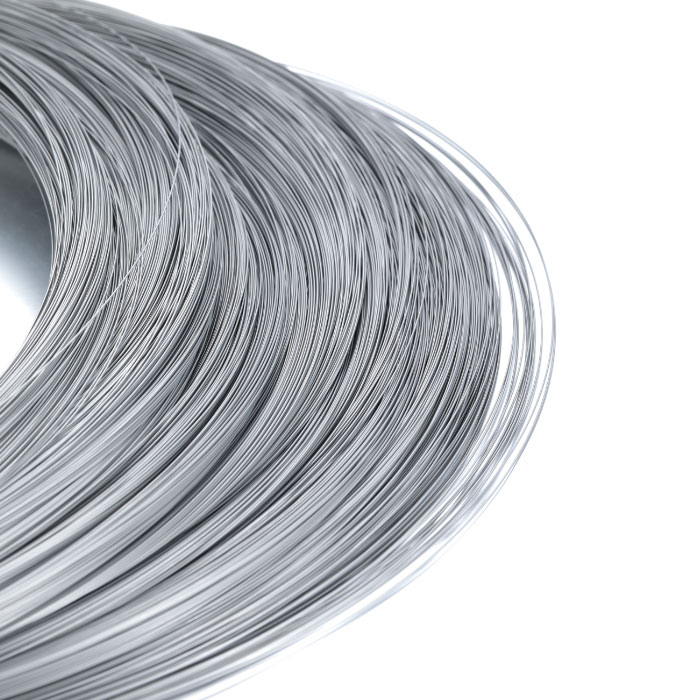Stainless Steel Wire: Strength, Versatility, and Durability in One
2025-06-18
When it comes to reliable and long-lasting wire materials, stainless steel wire stands out as a top choice across numerous industries. Known for its excellent corrosion resistance, high strength, and aesthetic appeal, stainless steel wire offers unmatched performance in both everyday and specialized applications.
In this blog, we’ll explore what stainless steel wire is, its key properties, common uses, and why it’s the go-to material for many professionals.

What Is Stainless Steel Wire?
Stainless steel wire is a thin, flexible metal wire made from stainless steel alloys, which typically include chromium, nickel, and other elements. The chromium content gives the wire its remarkable resistance to rust and corrosion, making it ideal for environments exposed to moisture, chemicals, or extreme temperatures.
Key Properties of Stainless Steel Wire
Corrosion Resistance: Resists rust and tarnishing even in harsh environments like marine or industrial settings.
High Tensile Strength: Offers excellent durability and can withstand heavy loads or tension without breaking.
Heat Resistance: Maintains strength and stability under high temperatures.
Aesthetic Appeal: Smooth, shiny surface makes it suitable for visible applications.
Flexibility: Easily bent or shaped without losing strength, suitable for intricate designs or precise uses.
Common Types of Stainless Steel Wire
304 Stainless Steel Wire: The most common grade, known for excellent corrosion resistance and versatility.
316 Stainless Steel Wire: Superior corrosion resistance, especially in saltwater environments, ideal for marine applications.
Annealed Wire: Soft and flexible for easy shaping.
Tempered Wire: Harder and stronger for heavy-duty use.
Applications of Stainless Steel Wire
Construction: Used in reinforcing structures, suspension cables, and fencing.
Medical: Surgical instruments, orthodontic braces, and implants.
Automotive: Control cables, springs, and safety components.
Electronics: Wire mesh, shielding, and connectors.
Art and Jewelry: Wire wrapping, sculptures, and decorative pieces.
Industrial: Filtration, wire ropes, and springs.
Why Choose Stainless Steel Wire?
Longevity: Resistant to corrosion and wear, it lasts longer than many other wire types.
Low Maintenance: Requires minimal upkeep, saving time and cost.
Safety: Non-reactive and suitable for medical and food-related applications.
Versatility: Available in various diameters, finishes, and strengths to suit diverse needs.
Tips for Working with Stainless Steel Wire
Use appropriate tools like wire cutters and pliers designed for stainless steel.
Consider the wire’s tensile strength and flexibility when planning your project.
Choose the right grade based on environmental exposure and strength requirements.
When welding or joining, follow proper procedures to maintain corrosion resistance.
Final Thoughts
Stainless steel wire is a powerful and adaptable material that meets the demands of many industries and creative projects. Its combination of strength, corrosion resistance, and flexibility makes it an excellent choice whether you’re building infrastructure, crafting jewelry, or designing medical devices.
If you’re looking for a reliable wire solution, stainless steel wire might just be the perfect fit.


